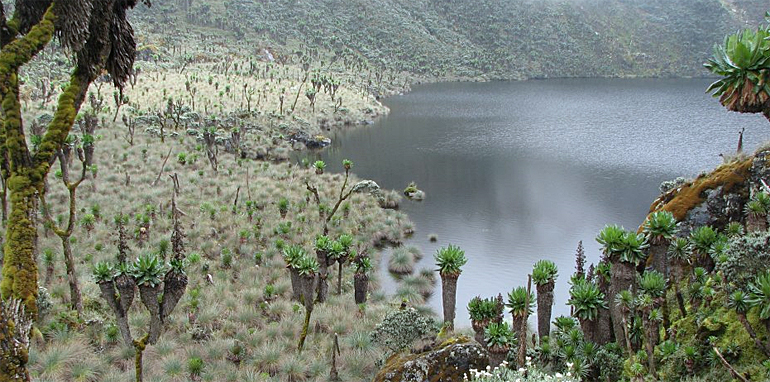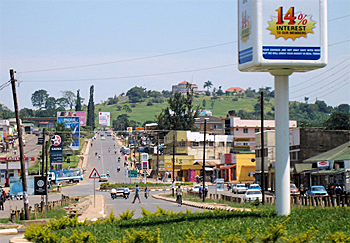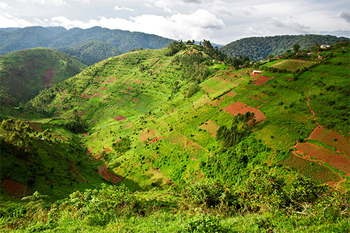FutureWater studies a financial scheme for watershed services in Rwenzori national park, Uganda
 Consultancy firm FutureWater recently participated in the inception meeting organized by World Wildlife Fund in Uganda, on a hydrological and agronomic study for the payment for watershed services in Rwenzori mountains national park, Uganda.
Consultancy firm FutureWater recently participated in the inception meeting organized by World Wildlife Fund in Uganda, on a hydrological and agronomic study for the payment for watershed services in Rwenzori mountains national park, Uganda.
During the meeting in Kampala different methods were discussed for engaging downstream water users in the conservation of healthy upstream watersheds of the Mubuku and Nyamwamba rivers.
The pilot study is part of the larger project 'Sustainable financing of the Rwenzori mountains national park' that is coordinated by WWF and is funded by the European Union and the French Funds for Global Environment.
 Economic development in the town of Fort Portal that gives access to the national park.
Economic development in the town of Fort Portal that gives access to the national park.
Increasing erosion
Rwenzori mountains national park was recognized as a UNESCO World Heritage Site in 1994 and a Ramsar Site in 2009.
The Rwenzori region has an annual population growth rate of 5 percent and the economic dependence on the park, such as agriculture and tourism, is leading to increase in erosion and eventual watershed degradation and sedimentation of the rivers.
WWF has in the recent years recognized the strong links between conservation and sustainable use of biological diversity, and the eradication of extreme poverty.
 Poorly managed plantations on the hills of the national park led to soil erosion.
Poorly managed plantations on the hills of the national park led to soil erosion.
Payments for watershed services
The aim of the study on payment for watershed services is to build a scheme that is based on hydrological and agronomic data, mapping and modeling.
The principal watershed services will be assessed, priority areas and interventions will be identified, stakeholders will be engaged, and the monitoring and evaluation structure will be defined.
The payment scheme should engage large, downstream users, such as corporations and utilities, to contribute to a water conservation scheme as a way of shoring up their business investments.
To understand the value of the resources and what interventions are required to protect these resources, a study is required to map the resources, stakeholders, and drivers to behaviour change and management change in the study area.
This news item was originally published on the website of FutureWater.
More information
FutureWater
Wageningen, the Netherlands
+31 317 460 050
www.futurewater.nl/uk



